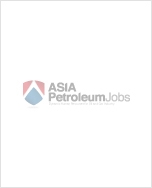|
Puma Energy Asia Sun, a joint venture between Puma Energy and local firm Asia Sun Energy, is looking to move beyond storage services in Myanmar to include oil products distribution in the country, said a top executive.
|

|
|---|---|
|
Myanmar's fuel demand is rapidly rising and the country is fast becoming a key importer in the Southeast Asia region. The company opened the country's newest and largest oil products terminal on May 6 with a storage capacity of 91,000 cubic metres in Thilawa. The terminal, which cost $92 million, is designed to hold mostly middle distillates, with 29,000 cubic metres of space for gasoil and 21,000 cubic metres for jet fuel. Another 17,000 cubic metres is dedicated to store gasoline and the remaining for bitumen and fuel oil. Puma Energy Asia Sun only provides storage services, but intends to apply for a license to distribute oil products, said David Holden, general manager of the firm, although it was unclear when that will be granted. "With the change in Myanmar's investment law on April 1, Puma Energy Asia Sun is investigating eligibility to broaden its business scope to include all aspects of the supply chain," he added. "We believe that Puma Energy is one of three foreign firms in the final round of bidding for the Myanmar Petroleum Products Enterprise (MPPE) network tender to run part of Myanmar's petroleum downstream business." Myanmar, which has three small refineries with a total capacity of below 80,000 bpd, last month reformed its rules governing foreign investments in order to attract more overseas capital. Under the MPPE tender, the winning company will take a minority stake in MPPE and contribute to upgrading the 28 terminals and depots it owns along with 13 retail sites, said Holden. Myanmar is projected to consume 93,000 barrels per day (bpd) of gasoline this year and 111,000 bpd next year, up 24 percent and 48 percent respectively when compared to 2016, said Nevyn Nah of consultants Energy Aspects. In comparison, gasoline consumption in Vietnam, Asia's second-largest gasoline importer after Indonesia, is expected to reach 142,000 bpd in 2017 and 154,000 bpd in 2018, up 6.8 percent and 15.8 percent respectively versus 2016, said Nah. "Consumption is certainly higher in Vietnam but imports are more comparable (between the two countries)," added Nah. Puma Energy, owned by European commodity trader Trafigura and Angola's state oil company Sonangol, operates in 47 countries and has more than 90 storage terminals globally with over 7 million cubic metres in combined capacity. It also owns a refinery and retail sites in Papua New Guinea. |
|
Home >> Career Resource >> FAQ
Puma Energy Asia Sun Aims to Distribute Petroleum in Myanmar
Related Career Resource
By : Reuters l Reporting by Roslan Kwasawneh in SINGAPORE l Additional reporting by Jane Chung in SEOUL l Editing by Tom Hogue | July 25, 2017
By : Reuters - Reporting by Serajul Quadir l Editing by Louise Heavens | August 11, 2016
By : Reuters l Reporting by Jessica Jaganathan l Editing by Christian Schmollinger | May 08, 2017








